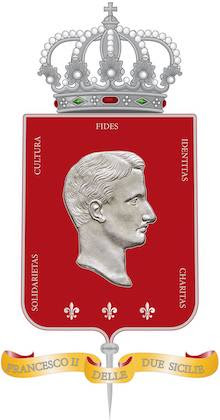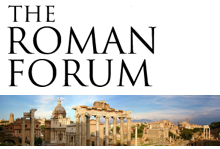 |
(L-R) Italian American Museum President Dr. Joseph V. Scelsa with the readers Dr. William D'Arienzo and Professor Santi Buscemi
|
Recently I had the pleasure of seeing The Interrogation, a play by the Sicilian author Luigi Capuana (1839—1915) at the Italian American Museum on Mulberry Street in New York City’s Little Italy. What made this event very special was that it was the first time this play has been translated into English from Sicilian, and for that we need to thank Professor Santi Buscemi who’s translation of Capuana’s The Marquis of Roccaverdina was reviewed by our site in September, 2013.
 Professor Buscemi does tremendous work for our community. He brings the culture of Southern Italy directly to us with his translations of Sicilian children’s stories (Sicilian Tales, 2009) and works from the Veristi School of literature. His upcoming book is about the history of Neapolitan music. In Capuana’s Interrogation the good professor plays the role of a Sicilian murder suspect being interviewed by a northern magistrate played by Dr. William D’Arienzo. The following is an excerpt from the advertisement of the play:
Professor Buscemi does tremendous work for our community. He brings the culture of Southern Italy directly to us with his translations of Sicilian children’s stories (Sicilian Tales, 2009) and works from the Veristi School of literature. His upcoming book is about the history of Neapolitan music. In Capuana’s Interrogation the good professor plays the role of a Sicilian murder suspect being interviewed by a northern magistrate played by Dr. William D’Arienzo. The following is an excerpt from the advertisement of the play:“The Interrogation (‘Ntrrugatoriu) is a play in one scene with two speaking parts. A murder suspect speaks Sicilian while his interrogator, a magistrate from the north (Piemonte or Lombardia, Capuana suggests), speaks Tuscan. This creates a linguistic contrast that underscores the alienation of the southern poor (the accused is a barber) in a state ruled by the arrogant northern bureaucracy of nineteenth-century Italy. The magistrate speaks in a cerebral, formal, and distant voice, while the accused is passionate and engaging, if not always honest. As such, Capuana is able to address differences in class, and he critiques the political reality under which the people of the Mezzogiorno suffered. But the dialogue in this exciting, suspense-filled play goes beyond politics. Capuana believed that our fate was determined largely by forces outside our control: the environment, economics, and our animal biology. An expert at exposing human motives found at the lowest depths of the psyche, he wrote several works that remain masterpieces of psychological and emotional intrigue. The Interrogation, which focuses on a man driven to violence by passion, hubris, and jealousy, is one of them.”
In order to familiarize the audience with the differences between Sicilian and Tuscan, part of the play was read in its original form before the full English version was started. Far from being a dialect, Sicilian is a distinct language that is actually older than Italian. It was enlightening to see how that difference was incorporated into Capuana’s play.
 |
The Magistrate (D'Arienzo) makes his entrance
|
After the performance, Santi read from Capuana’s The Marquis of Roccaverdina to further accentuate the veristi’s writing style. There was a brief question and answer period and then he spoke at length about the people he met and his experiences in Sicily while doing research on Capuana. He praised how friendly the Sicilians were during his stay and how invaluable they were to his work. Professor Buscemi generously donated copies of his books; all proceeds went to the Italian American Museum.
 |
Copy of the script in Sicilian, Italian and English
|
We would like to thank Dr. Joseph Scelsa, president of the Italian American Museum, for hosting this play and for all the work the IAM does for the Italian American community. We are also very grateful to Professor Santi Buscemi and Dr. William D’Arienzo for the performance, and for Santi’s many translations of Sicilian literature.
 |
Professor Buscemi reads from The Marquis of Roccaverdina
|
Italian Americans today complain that the younger generations do not hold the values and culture of their ancestors, but it is my opinion that many of these young people simply do not know about them. In our rush to Americanize our families we failed to pass on the rich cultural history that is ours, and that is a tragedy because it does not take away from being American but enriches it. Our ancestors shared many of the same values that made America great, such as a respect for hard work and the value of family. Many people try to find themselves in the culture of others but never think to look into their own past, and find who they truly are. With their work, people like Dr. Joseph Scelsa and Professor Santi Buscemi return to us a lost part of ourselves and for this we are eternally grateful.








